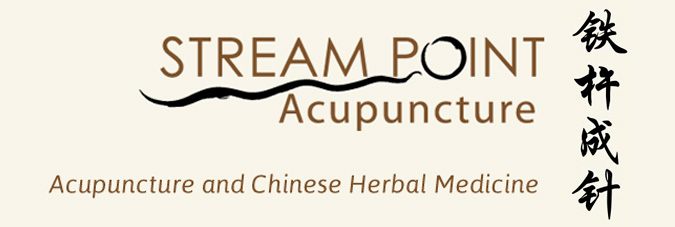Why do I need Nutritional Supplements?
I have been asked this question many, many times. Most people think that if they just “eat right” or “eat a variety of foods” then they will be able to obtain the proper amount of Vitamins and Minerals that their body requires to function at its highest potential. However, the truth is, most people simply won’t eat the variety of foods that their body truly needs. Even if you were to consume an optimum amount and variety of fruits and vegetables, our soil isn’t what it once was. It doesn’t contain the amount of nutrients that it used to. And most people purchase their food at a large chain grocery store in which most produce is picked way before its time; therefore, drastically lowering the amount of nutrients available in each bite.
To shed some light on this topic, I will be posting about different Supplements in hopes to shed some light on a widely misunderstood topic. However, In order to begin, I turn to the experts, my “food scientist friends” from USANA Health Sciences, to answer the not-so-simple question “Why do I need Nutritional Supplements.”
“For over 50 years we’ve been led to believe that RDA levels are adequate… …but adequate for what? Adequate to prevent clinically obvious nutritional deficiencies like scurvy, beriberi, rickets, and pellagra? According to the Food and Nutrition Board (under the umbrella of the National Institutes of Health): “The Recommended Dietary Allowance (RDA) is the average daily dietary intake level that is sufficient to meet the requirement of nearly all apparently healthy individuals in a particular life stage and gender group.” The Food and Nutrition Board further defines “requirement” as: “the lowest continuing intake level of a nutrient that, for a specified indicator of adequacy, will maintain a defined level of nutriture in an individual. Basically, the RDA is – by their own definition – the lowest level of nutrient intakes that will prevent deficiencies in apparently healthy individuals. And, while RDA levels may have helped us to avoid acute deficiency diseases, they do not address any issues of optimal nutrition. The RDAs have certainly played an important role in public health. Most assuredly, they provide amounts that will prevent you from getting scurvy, pellagra, rickets or beriberi. However, in the general population, these vitamin-related diseases are of little concern. Products based solely on RDA amounts are fine for their intended purpose (i.e. providing minimal amounts of important vitamins and minerals), but the RDA of vitamins and minerals is not always enough to help prevent certain degenerative diseases or to provide protection from oxidative damage. In other words, there are more benefits of nutritional supplementation than just preventing rare deficiencies. Really, the RDA should only be considered the “minimum wage” of nutrition. USANA’s products are formulated with the most up-to-date nutritional research in mind, which may or may not have relevance to the RDAs. Rather than just trying to prevent total vitamin deficiencies, we are concerned with the vast majority of people who are “apparently” healthy. Many degenerative diseases and chronic illnesses develop over a lifetime, striking otherwise healthy individuals when they least expect it. The bottom line is that for the millions of “apparently” healthy individuals in the world, minimal nutrient intakes and the RDAs are not always adequate – or even designed – to address our most common health challenges. According to the Centers for Disease Control (CDC), much of the illness, disability, and death associated with chronic disease is avoidable through known prevention measures. Furthermore, a recent study examining the potential economic benefits of vitamin supplementation concluded that there are substantiated cost reductions associated with the use of vitamin supplements, based on preventative nutrition. What does this mean for you? Basically, that there can be substantial cost reductions associated with vitamin supplements based on the principle of preventative nutrition. A question we are commonly asked is, “if I am eating healthy, do I still need to take supplements?” A healthy diet is a necessary foundation for any program of optimal nutrition, and there is really no substitute for eating well. In this context, USANA’s nutritional supplements are designed to complement a healthy diet – not replace it. Our supplements are designed to provide advanced levels of vitamins, minerals, and antioxidants that are difficult to obtain from diet alone; levels that we could all use, everyday, to promote a lifetime of good health. More importantly, we are not the only ones who are convinced of the health benefits of nutritional supplements. In June 2002, the Journal of the American Medical Association published two articles by health researchers at Harvard University. Their articles were entitled “Vitamins for Chronic Disease Prevention in Adults”. Through their research, these authors concluded that “suboptimal intake of some vitamins, above levels causing classic vitamin deficiency, is a risk factor for chronic diseases and common in the general population, especially the elderly. Suboptimal folic acid levels, along with suboptimal levels of vitamins B6 and B12, are a risk factor for cardiovascular disease, neural tube defects, and colon and breast cancer; low levels of vitamin D contribute to osteopenia and fractures; and low levels of the antioxidant vitamins (vitamins A, E and C) may increase risk for several chronic diseases.” The scientific evidence supporting the health benefits of nutritional supplements is solid and growing daily, and more health care professionals than ever before are now siding with the conclusions drawn from these two review articles published in the Journal of the American Medical Association. We believe there has never been a better time to put the science of nutrition to work in promoting your health.” Taken From Ask the Scientists at USANA Health SciencesMandy Kiley, LMT at Stream Point Wellness

